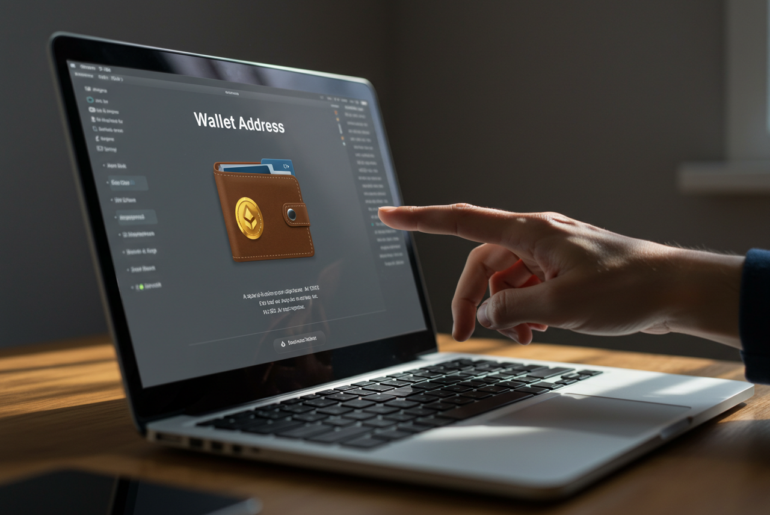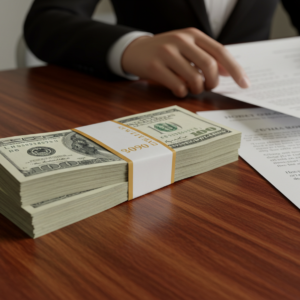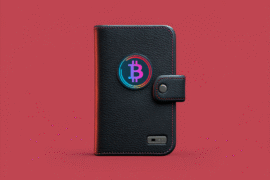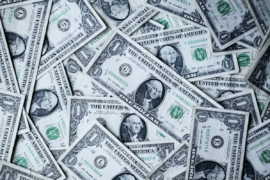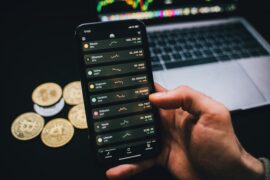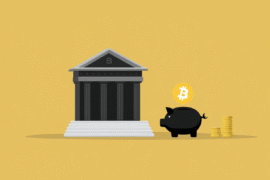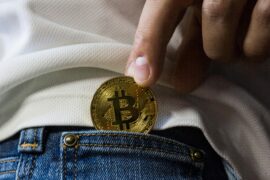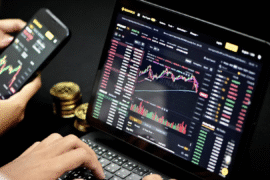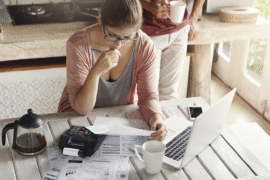This article may contain references to products or services from one or more of our advertisers or partners. We may receive compensation when you click on links to those products or services. Nonetheless, our opinions are our own.
The information presented in this article is accurate to the best of our knowledge at the time of publication. However, information is subject to change, and no guarantees are made about the continued accuracy or completeness of this content after its publication date.
- Highlights
- Introduction
- Understanding Your Wallet Address
- What Is a Wallet Address and Why It Matters
- How Wallet Addresses Keep Your Crypto Secure
- Components of a Wallet Address
- The Role of Encryption
- Getting Started with Wallet Addresses
- Choosing the Right Crypto Wallet
- Essential Security Measures
- Using Wallet Addresses
- Conclusion
- Frequently Asked Questions
- Recommended Reads
Highlights
- A wallet address is a special set of characters used to send and receive digital money.
- It comes from public keys and helps keep transactions safe on the blockchain.
- Each type of cryptocurrency has its own format for wallet addresses, so being correct is very important.
- You can safely share public wallet addresses, but keep private keys secret.
- Wallet addresses show who owns crypto and help keep things private on the blockchain.
- New ideas like Wallet Name Services are making wallet addresses easier for people to use every day.
Introduction
When using cryptocurrency, it is important to know your wallet address. A wallet address is a special digital ID that helps you send and receive money safely. It works like an email address for money transactions. This way, your digital cash goes to the right place. By learning how wallet addresses work, you can take care of your money well.
Understanding Your Wallet Address
A wallet address links your cryptocurrency wallet to the blockchain. It acts as an identifier that lets others send money to you. This happens without showing your private information.
Wallet addresses are different for each cryptocurrency. For instance, Bitcoin addresses may start with “1,” “3,” or “bc1,” while Ethereum addresses usually begin with “0x.” Since the formats are different, entering the wrong address can cause losses that cannot be undone. It is very important to be exact in every transaction.
What Is a Wallet Address and Why It Matters
A wallet address is a string of letters and numbers that shows your place in a blockchain network. It comes from your public key and helps you send and receive crypto safely.
Understanding wallet addresses helps you keep your things safe. You can share the address, but it won’t show who you are or any private details. This setup helps keep your information private and lets transactions work well.
If you enter the wrong wallet address or use the wrong format, you can lose your funds for good. Learning how different blockchains set up their addresses will help keep your transactions safe and trustworthy.
How Wallet Addresses Keep Your Crypto Secure
Wallet addresses use private keys to keep your crypto transactions safe. Only the right private key can allow the transfer of money from a wallet. This process creates a strong way to prove ownership.
Each wallet address is saved on the blockchain when a transaction happens. This offers transparency, but it does not show people’s identities. Users can follow their money because of encryption and decentralized networks. This way, they can keep their identity hidden.
Smart contracts use wallet addresses to carry out transactions automatically, without needing outside help. This method cuts down on fraud and makes sure that the money or items go to the right person.
Voted "Best Overall Budgeting App" by Forbes and WSJ
Monarch Money helps you budget, track spending, set goals, and plan your financial future—all in one app.
Get 50% OFF your first year with code MONARCHVIP
Components of a Wallet Address
A wallet address is made up of two main parts: a public key and a private key.
- Public Key: You can share this safely. It acts like your blockchain ID. It lets others send you money.
- Private Key: You need to keep this secret. It gives you full access to your wallet and control over your funds.
Many modern wallets use a seed phrase. This serves as a backup that lets users get back access. Some wallets can support several wallet addresses with one seed phrase. This makes it easier to manage assets.
The Role of Encryption
Encryption is very important for keeping your crypto wallet safe. It changes private information, like your key, into a code that cannot be read. This helps to stop people from getting in without permission.
Transactions on the blockchain are checked by nodes that use special methods to make sure everything is right. Encrypted wallets keep user information safe and confirm transactions securely.
Today’s wallets have strong security features. They let users make transactions without worry. This keeps their data safe from any danger.
Getting Started with Wallet Addresses
To start using wallet addresses, you need to pick a cryptocurrency wallet that fits your needs. Hardware wallets give the best security. Software wallets are easier to use for everyday tasks.
Once your wallet is set up, it will create your first wallet address on its own. Make sure to write down your seed phrase and keep your private key safe. With your wallet prepared, you can start sending and receiving digital items across supported blockchain networks.
Choosing the Right Crypto Wallet
When choosing a crypto wallet, think about your goals and how much risk you can handle.
- Hardware Wallets: Provide great security by keeping private keys offline. They are best for storing over a long time.
- Software Wallets: Focus on being easy to use and are perfect for daily transactions. Examples are MetaMask and Coinbase Wallet.
- Custodial Wallets: These are provided by exchanges. They are convenient but mean you give up direct control of your private keys.
Finding the right balance between safety and ease will help you make good choices for your crypto activity.
Essential Security Measures
To keep your money and wallet safe, do these simple things:
- Seed Phrase: Write it down and keep it safe. Do not share it online.
- Strong Passwords: Use strong, simple passwords to get into your wallet.
- Private Key Protection: Never give your private key to anyone.
- Double-Check Wallet Addresses: A small mistake can lead to big losses.
Extra steps, like using trusted hardware wallets, turning on two-factor authentication (2FA), and keeping offline backups, can improve your security.
Using Wallet Addresses
Step 1: Setting Up Your Wallet
Get a wallet app or buy a hardware wallet. Follow the setup steps closely, which will involve creating a seed phrase. Keep this safe, it’s your backup if you lose it.
Many wallets support several cryptocurrencies. This lets you manage different things all in one place.
Step 2: Generating Your First Wallet Address
Your wallet makes a special address by itself. Each address fits the format of its blockchain. For example, Ethereum addresses start with “0x…” and some Bitcoin addresses start with “bc1…”.
You can send your wallet address through text or a QR code. A QR code helps to avoid mistakes when you send or receive money.
Step 3: Making Your First Transaction
To send crypto, type the wallet address of the person you want to send it to in your wallet app. You can also scan their QR code. Make sure to check that the address is right before you confirm.
Once you confirm, the transaction is signed using your private key. It is then sent out to the blockchain. Starting with a small amount lets you test the process in a safe way.
Conclusion
Knowing your wallet address is important for safe and easy crypto transactions. You can protect your things by learning how public and private keys work. By following good tips for setting up and using your wallet, you can feel sure about using the blockchain.
Always make security your main focus. Pick the right wallet type for your goals. Always check each transaction closely. As you go through your crypto journey, being informed and careful will help you avoid risks. This way, you can get the best from decentralized finance.
Frequently Asked Questions
Yes. You can share your public wallet address so others can send you cryptocurrency. But never share your private key or seed phrase. Follow the wallet provider’s instructions to keep your things safe.
What should I do if I send crypto to the wrong address?
I’m sorry, but blockchain transactions cannot be undone. If you know the person you sent the money to, reach out to them directly. If not, the money may be lost. Always check the wallet address before you confirm a transaction.
Are wallet addresses different for each crypto?
Yes. Bitcoin, Ethereum, and other cryptocurrencies use different formats. Double-check the address format before sending crypto.
What happens if I send crypto to the wrong address?
Transactions on the blockchain can’t be reversed. If the address is wrong, the money is likely gone. Always triple-check before hitting send.
How does a wallet address keep my crypto safe?
Your wallet address is linked to a private key that proves you own the funds. Only your private key can approve transactions, keeping your assets secure.

Reviewed and edited by Albert Fang.
See a typo or want to suggest an edit/revision to the content? Use the contact us form to provide feedback.
At FangWallet, we value editorial integrity and open collaboration in curating quality content for readers to enjoy. Much appreciated for the assist.
Did you like our article and find it insightful? We encourage sharing the article link with family and friends to benefit as well - better yet, sharing on social media. Thank you for the support! 🍉
Article Title: Why You Should Understand Your Wallet Address for Safer Transactions
https://fangwallet.com/2025/09/13/why-you-should-understand-your-wallet-address-for-safer-transactions/The FangWallet Promise
FangWallet is an editorially independent resource - founded on breaking down challenging financial concepts for anyone to understand since 2014. While we adhere to editorial integrity, note that this post may contain references to products from our partners.
The FangWallet promise is always to have your best interest in mind and be transparent and honest about the financial picture.
Become an Insider

Subscribe to get a free daily budget planner printable to help get your money on track!
Make passive money the right way. No spam.
Editorial Disclaimer: The editorial content on this page is not provided by any of the companies mentioned. The opinions expressed here are the author's alone.
The content of this website is for informational purposes only and does not represent investment advice, or an offer or solicitation to buy or sell any security, investment, or product. Investors are encouraged to do their own due diligence, and, if necessary, consult professional advising before making any investment decisions. Investing involves a high degree of risk, and financial losses may occur including the potential loss of principal.
Source Citation References:
+ Inspo
There are no additional citations or references to note for this article at this time.
